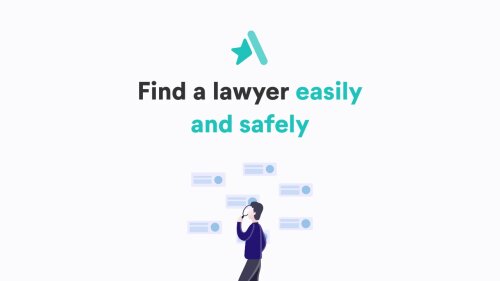Best Communications & Media Law Lawyers in Oslo
Share your needs with us, get contacted by law firms.
Free. Takes 2 min.
List of the best lawyers in Oslo, Norway
About Communications & Media Law in Oslo, Norway
Communications & Media Law in Oslo, Norway, deals with legal aspects related to the media and telecommunications sectors. This includes issues related to broadcasting, telecommunications, regulatory compliance, freedom of speech, privacy, defamation, intellectual property, digital media, and advertising. Norwegian law is designed to balance the rights of individuals and the public interest, ensuring fair and transparent media practices while fostering a competitive and innovative communications environment.
Why You May Need a Lawyer
There are several common situations where individuals or organizations may require legal assistance in Communications & Media Law:
- Defamation and Libel: If you believe you have been defamed in any media outlet, legal advice can help you understand your rights and pursue compensation.
- Intellectual Property Issues: If your creative work has been used without permission, a lawyer can help you protect your intellectual property.
- Regulatory Compliance: Media companies often need to navigate complex regulations. Legal advice ensures that you operate within the law.
- Contract Negotiation: Lawyers can assist in drafting and negotiating contracts to protect your interests.
- Privacy Concerns: If your privacy rights have been violated by media coverage or telecommunications companies, legal advice is essential.
Local Laws Overview
Key aspects of local laws relevant to Communications & Media Law in Oslo, Norway, include:
- The Norwegian Constitution: Protects freedom of speech but also sets limitations to prevent harm to others.
- Broadcasting Act: Regulates public and private broadcasting to ensure content adheres to standards of fairness and decency.
- The Personal Data Act: Governs how personal data must be handled, ensuring privacy and protection of individuals' information.
- Copyright Act: Provides legal protection for creators of original works, covering publications, artistic works, and digital media.
- The Marketing Control Act: Regulates advertising to prevent misleading claims and protect consumers.
Frequently Asked Questions
What is defamation, and how is it addressed in Norwegian law?
Defamation involves making false statements that damage someone's reputation. Under Norwegian law, you may sue for damages if you can prove the statement was false and caused harm.
How can I protect my intellectual property in Norway?
The Norwegian Copyright Act protects original works from unauthorized use. Registering your work and consulting a lawyer can provide additional safeguards.
Are there regulations regarding online content in Norway?
Yes, digital media is subject to the same laws that govern traditional media, with additional regulations for online data privacy under the Personal Data Act and GDPR.
What should I do if I have been defamed by a media outlet?
Consult a Communications & Media lawyer to assess your case, gather evidence, and discuss potential legal actions for damages or retractions.
Are there restrictions on advertising in Norway?
Yes, the Marketing Control Act sets guidelines to prevent false advertising, ensuring that ads are truthful and non-deceptive.
How does the Broadcasting Act affect media companies in Oslo?
The Broadcasting Act requires that content be responsible, fair, and impartial. Media companies must adhere to these standards to maintain their licenses.
What rights do consumers have regarding telecommunications in Norway?
Consumers are protected under the Personal Data Act and specific telecommunications regulations that ensure their data privacy and service rights.
What kind of content is restricted under Norwegian media laws?
Content that is violent, hateful, or discriminatory is restricted. There are also provisions against misinformation and protecting minors from harmful content.
Can I sue for privacy invasion by the media?
Yes, if the media unlawfully invades your privacy, you can seek legal remedy. Consultation with a Communications & Media lawyer can clarify your options.
What are the consequences for breaking communications and media laws in Norway?
Violations can result in fines, suspension of licenses, and even criminal charges, depending on the severity of the breach.
Additional Resources
For further assistance, consider reaching out to the following resources:
- Norwegian Media Authority (Medietilsynet)
- The Norwegian Data Protection Authority (Datatilsynet)
- Norwegian Bar Association
- Ministry of Culture
- Consumer Council (Forbrukerrådet)
Next Steps
If you need legal assistance in Communications & Media Law, here are your next steps:
- Identify Your Issue: Clearly define your legal concern to better explain it to a lawyer.
- Research Lawyers: Look for lawyers specializing in Communications & Media Law in Oslo, Norway.
- Consult a Professional: Schedule consultations to discuss your case and determine the best legal approach.
- Prepare Documentation: Gather all necessary documents and evidence supporting your case.
- Follow Legal Advice: Trust the guidance provided by your lawyer to navigate the legal complexities effectively.
Lawzana helps you find the best lawyers and law firms in Oslo through a curated and pre-screened list of qualified legal professionals. Our platform offers rankings and detailed profiles of attorneys and law firms, allowing you to compare based on practice areas, including Communications & Media Law, experience, and client feedback.
Each profile includes a description of the firm's areas of practice, client reviews, team members and partners, year of establishment, spoken languages, office locations, contact information, social media presence, and any published articles or resources. Most firms on our platform speak English and are experienced in both local and international legal matters.
Get a quote from top-rated law firms in Oslo, Norway — quickly, securely, and without unnecessary hassle.
Disclaimer:
The information provided on this page is for general informational purposes only and does not constitute legal advice. While we strive to ensure the accuracy and relevance of the content, legal information may change over time, and interpretations of the law can vary. You should always consult with a qualified legal professional for advice specific to your situation.
We disclaim all liability for actions taken or not taken based on the content of this page. If you believe any information is incorrect or outdated, please contact us, and we will review and update it where appropriate.














